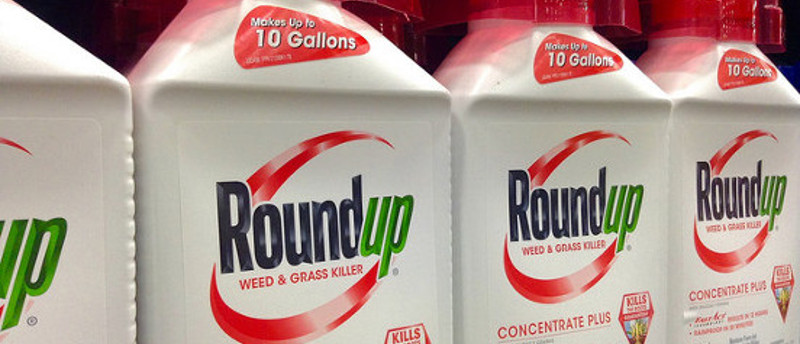Roundup Weed Killer Cancer: What's the Risk?

Roundup Weed Killer is an herbicide developed in the 1970s by the Monsanto Company that contains the active ingredient glyphosate. Roundup Weed Killer was initially developed for small-scale use and became widely available for homeowners, gardeners, and small-scale farmers. With the advent of genetically modified organisms (GMOs) in the 1990s, which allowed farmers to apply the weed killer to entire fields without destroying crops, Roundup's use increased rapidly, and it's used widely today in agricultural, industrial, and residential settings.
In recent years, Monsanto has become the subject of thousands of Roundup lawsuits due to the claim that its active ingredient (glyphosate) causes cancer, including non-Hodgkin's lymphoma. Plaintiffs are seeking compensation claim to cover medical costs and other expenses related to their cancer diagnosis.
There is some scientific evidence showing a potential link to cancer from exposure to Roundup Weed Killer's active ingredient glyphosate. A recent study into the effects of glyphosate showed a potential link with cancer, as well as liver and kidney damage. Severe cases of liver or kidney damage can disrupt the body's endocrine system, which regulates hormones. This disruption increases the risk of non-Hodgkin lymphoma.
Due to limited regulation of research on glyphosate in the U.S., data is limited. However, a 2003 American study of more than 3,400 farmworkers from the Midwest found higher rates of non-Hodgkin lymphoma associated with glyphosate.
Other Medical Problems
Prior to recent findings of a potential link between the chemical and carcinogens, most medical issues were related to the misuse or overuse of the weed killer. Users may experience burning or itchy eyes or noses, particularly when touching the face without washing their hands or protecting these spots.
The risk of cancer and other health issues, such as kidney disease, associated with glyphosate exposure has led to several countries banning the substance.
Regulation of Roundup Weed Killer
Glyphosate has never been part of the chemicals that U.S. Environmental Protection Agency (EPA) tests for pesticide residue in human blood and tissues. As such, there is little EPA data regarding exposure levels from people who use the product in their yards, live near farms, or eat foods from treated fields.
In April 2015, the World Health Organization's International Agency for Research on Cancer (IARC) study strongly suggested that glyphosate may be carcinogenic, or contributing to the causes of cancer. Their research found glyphosate in farmers' urine and blood, chromosome damage in cells, increased risks of non-Hodgkin's lymphoma in some exposed individuals, and tumor formation in some animals. Prior to that announcement, the EPA had determined that science provided no evidence linking glyphosate to cancer. In light of the WHO research, the EPA has begun an investigation into the potential health risks of glyphosate.
As of 2018, glyphosate is currently under review by the EPA to determine its status as a carcinogen. The most recent issue paper published by the agency in December 2017 recommended a status of "not likely to be carcinogenic to humans," though this determination could be changed in future reviews of the chemical. The same EPA report stated that, in the agency's opinion, the chemical did not warrant a "probable human carcinogen" label.
Common Uses of Roundup Weed Killer
Residential: Many people use Roundup Weed Killer to kill weeds around their homes, such as in their yards, along house foundations, and even in their gardens.
Commercial: Property managers use Roundup frequently to keep the landscapes around their businesses free of unsightly weeds and other plants.
Municipal: City and other local governments in some areas use Roundup as a way to keep city properties, such as parks and public buildings, weed-free.
Agricultural: Comes in formulations that are designed for use on farms, where large areas of land need to be kept free of weeds so that crops can grow.
Roundup Weed Killer Lawsuits
In October 2016, dozens of lawsuits against Roundup Weed Killer and its parent company Monsanto were consolidated into a multidistrict litigation, allowing multiple plaintiffs to use the same processes and court to make the legal process more efficient. The U.S. District Court for the Northern District of California is overseeing the MDL 2741.
